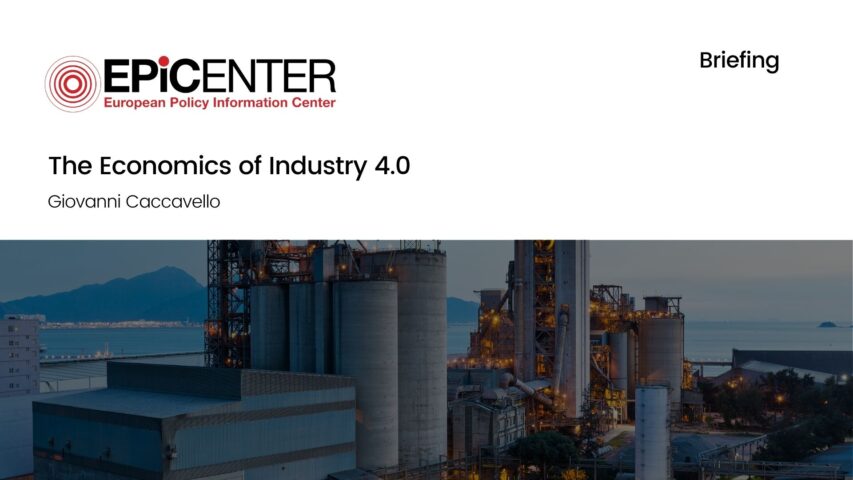The Economics of Industry 4.0

The Economics of Industry 4.0
February 2017
Viewed over the sweep of history, concerns about technological unemployment have always proved overblown. Over the last two-hundred years, technology has created more jobs than it has destroyed and it has substantially increased labour productivity and living standards.
European countries that tend to report lower levels of tertiary educational attainment; poorer scores in maths, science and reading skills; invest less in information and communication technologies; and have a weaker focus on communicative skills in their workplaces, are the ones with a higher share of jobs at high risk.
Download or share this publication
View the PDF
EPICENTER publications and contributions from our member think tanks are designed to promote the discussion of economic issues and the role of markets in solving economic and social problems. As with all EPICENTER publications, the views expressed here are those of the author and not EPICENTER or its member think tanks (which have no corporate view).



